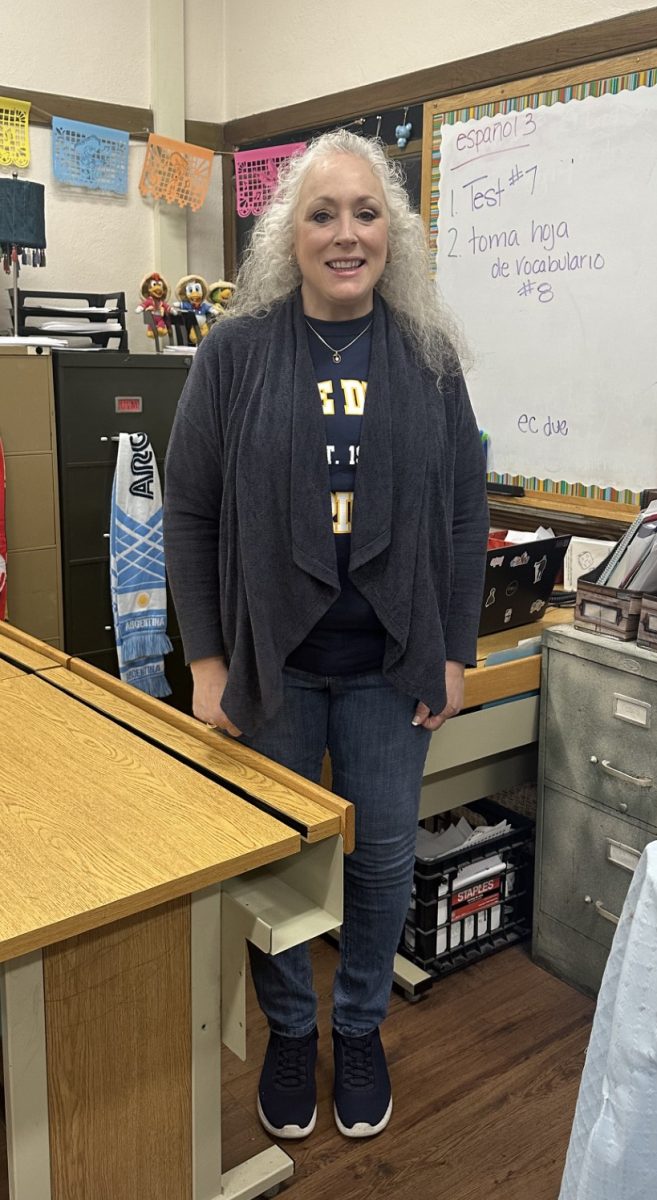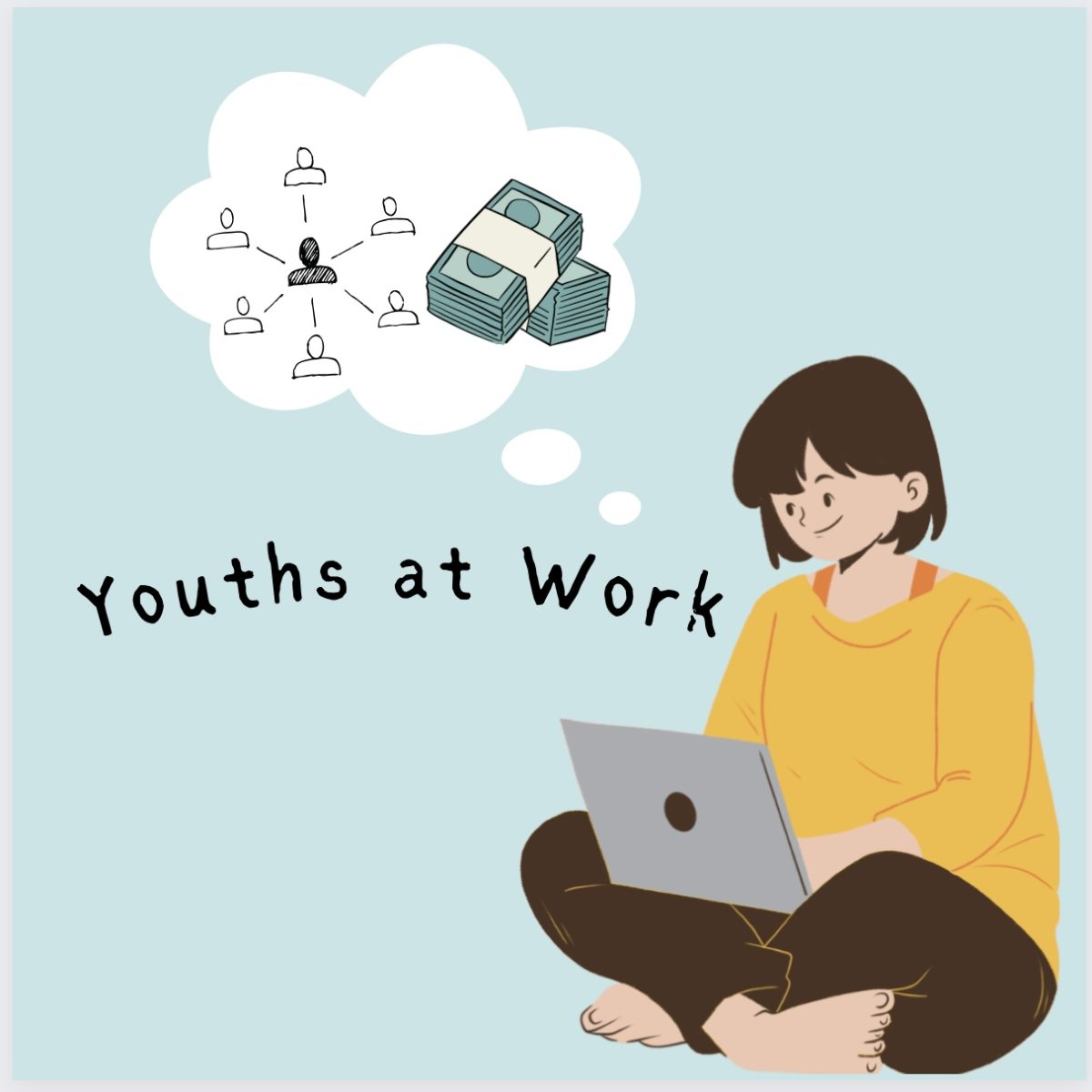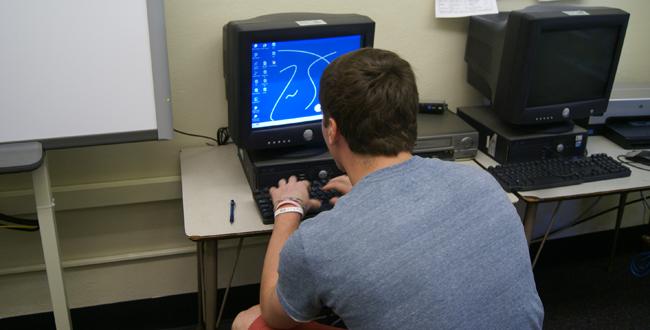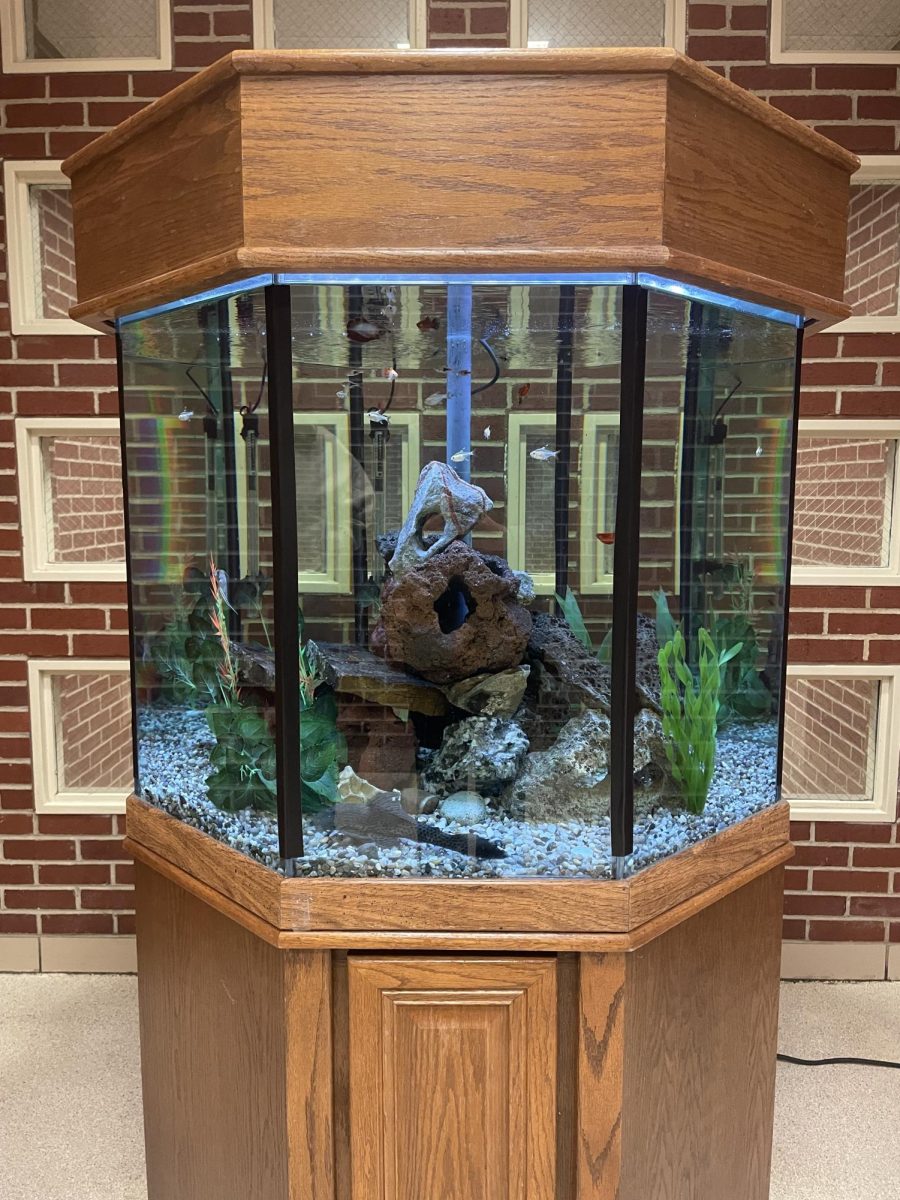Emily Mlynarek ’14 | Staff Writer
This year, a pile up of issues with the district’s aging technology has been brought to attention by the district, as it has been continually problematic for students and teachers, Librarian Courtney McGuire said.
The most troublesome issues have been with slow connections in the school’s computers, a delay in the staff email server, and a lack of wireless internet throughout South, McGuire said.
English teacher Nicholas Provenzano said that it takes eight to nine minutes to log into computers because of slow connections, which takes away from valuable class time.
“When it takes longer to access information or websites don’t load because everything is running really slowly, it impacts their (students’) abilities to get work done in a timely manner and it impacts teachers’ abilities to share information in a timely manner,” said Povenzano.
Computers throughout South have not been updated since 2007 and their aged hardware is in desperate need of an update, McGuire said.
“We desperately need to replace the aging computers in the district,” said South’s Network Technician Paul Hibbs. “There are many that are 10 years old and simply cannot handle the workload being asked of them.”
The computers are stuck on an outdated operating system, Windows XP, which holds the district back from making software updates, Hibbs said.
Additionally, there is a significant bandwidth shortage. A server’s bandwidth is the amount of data that can be transmitted in a fixed amount of time. Every day the district’s servers are overloaded, causing slow connections, McGuire said.
“The bandwidth issue is multifold, but the primary problem is (congestion) that occurs during our peak network traffic hours, generally between 11 a.m. and 2 p.m.,” said Hibbs.
This will be addressed with a new contract with Comcast that will expand the district’s network capacity. The upgrade is scheduled for this summer 2013, Hibbs said.
Lately, the most pressing issue in the district has been the Microsoft Outlook server, which causes frequent backup and delay among staff emails, McGuire said.
There was a hard drive failure several weeks ago and since then the exchange server has not been dependable. The district is working closely with Microsoft to make communication throughout the district more reliable, Hibbs said.
Within South, a shortage of computer labs has been an ongoing issue, Provenzano said.
“As more and more teachers are doing online projects, there is less lab space available and that is really frustrating when you are trying to plan out your school year,” said Provenzano.
In addition, students and teachers lack access to library computers throughout the school year when the library closes for testing or when computers are not working.
“The library is a hub,” said McGuire. “Anytime we are closed, whether it is during the day or before and after school is problematic.”
The library is closed every week for staff meetings and is the primary location for National Honors Society tutoring, extended ACT/MME testing, online Advanced Placement tests, the National Spanish Exam (NSE), and NWEA tests.
During the NSE, a few students were unable to submit their answers because the computers malfunctioned, McGuire said.
“My upcoming fear is that there could be potential issues with online AP Exams,” said McGuire.
With so many issues throughout the district, McGuire believes that a technology bond is necessary to fund for upgrades. The Grosse Pointe Public School District last received a bond in 1998, McGuire said.
“We can joke about how much technology has changed in the last four years, and we have not asked (for an update) since 1998,” said McGuire. “So, we are woefully overdue.”
In 1998, the district chose to integrate PC’s instead of Apple Computers. Now, with a technology bond, the district would be able to update computers, install Wireless Internet access points and address issues with servers, Hibbs said.
“I am hopeful that Grosse Pointe residents also see the need for supporting technology and will also support it in a millage vote when crafted and asked,” said McGuire.
If the district were to receive a technology bond, funds will not come in one large sum. Even if the district is granted a substantial amount of dollars, schools will see slow changes, McGuire said.
When given the opportunity to update technology, the district needs to be mindful of what it chooses to invest in, McGuire said.
“We need to look at what we can maintain for a long period of time and what our students and staff are comfortable using,” said McGuire. “We need to look at the big picture.”
In addition, teachers and students must be aware of and trained to use any new technology, Provenzano said.
“You can give someone $400 Ipad but if you don’t teach them how to use it for education, it is basically a $400 paperweight,” Provenzano said.
Wi-Fi coverage and network capacity are currently the focus and would be the first things addressed if the district were to receive the potential bond, Hibbs said.
“I think that there are some really nice programs out there like interactive simulations that I think we as a district do not look into because we don’t have either the resources available or the reliable technology to support it,” said McGuire.
Some schools across the district are better equipped for running Wi-Fi servers based on their infrastructure. For example, Maire Elementary and Grosse Pointe North are almost fully equipped with Wi-Fi because the buildings are newer, McGuire said.
Because of the age and structure of South’s buildings and metal sheeting in between the bricks it has been difficult to install Wi-Fi, McGuire said.
Eight new access points were installed on Monday, April 22 through Friday, April 26 thanks to a state grant and more will be installed as funding allows, Hibbs said.
“Technology should be able to enhance (school) in different ways, provide faster access to resources and materials, (and) allow for different ways to present information to students or for students to present information to you, making things more accessible,” Provenzano said.


















































































